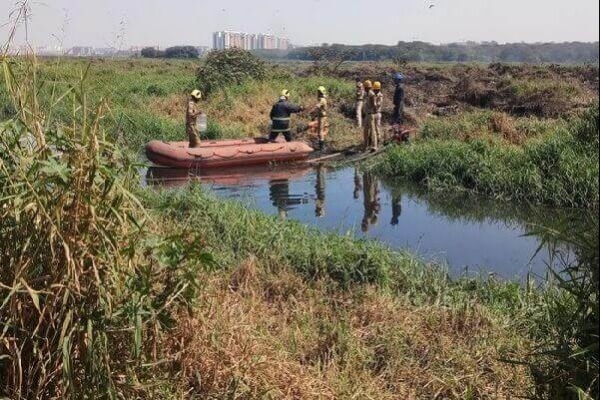Man-made crisis: Bengaluru may be first Indian city to run out of water

Bengaluru: Every day more than 1,000 water tankers rumble past Nagraj's small plywood store in Bengaluru, throwing up clouds of dust as they rush their valuable cargo to homes and offices in the drought-stricken tech hub. Gleaming new apartment blocks are still springing up all over Bengaluru, known as India's Silicon Valley, even though there is nowhere near enough mains water to supply those already living and working there.
Many rely entirely on supplies shipped in by tankers filled from giant borewells that have caused groundwater levels to plummet, sparking predictions Bengaluru could be the first Indian city to run out of water. Panathur lies next to Bangalore's biggest lake, Bellandur, which provides a poignant reminder that things weren't always like this. Once known as India's garden city for its lush green parks, Bengaluru was built around a series of lakes created to form rainwater reservoirs and prevent the precious resource from draining away.
Lakes on fire
Many lakes have now been concreted over to build apartment blocks with names like Dream Acres and Strawberry Fields to house the workers who have flocked here during India's outsourcing boom. "The city is dying," says TV Ramachandra, an ecologist with the Indian Institute of Science who has predicted the Karnataka state capital could be the first Indian city to follow Cape Town in running out of water. "If the current trend of growth and urbanisation is allowed (to continue), by 2020, 94 percent of the landscape will be concretised." Already, more than half of Bengaluru's estimated 10 million inhabitants have to rely on borewells and tankers for their water because there isn't enough mains supply to go round.
Rainwater harvesting
Ecologist Ramachandra says Bengaluru has enough annual rainfall to provide water for its estimated 10 million people without resorting to borewells or rivers -- if only it could harvest the resource more effectively. "If there is a water crisis, we should not think about river diversion. We should think about how to retain the water," he said, blaming "fragmented, uncoordinated governance" for the crisis. As in the rest of the country though, there is little incentive for citizens to save water. "In Bengaluru 1,000 bottles of the cleanest treated water comes to our doorstep and we pay only six rupees... the incentive is not there," says AR Shivakumar, a senior scientist with the Karnataka State Council of Science and Technology.
Despite this, Shivakumar and his family have not used a single drop of mains water in the 23 years they have lived at their home in Bengaluru. Instead they rely entirely on rainwater collected through gutters and stored in large tanks under the house, which Shivakumar designed with water efficiency in mind. "This crisis will force everyone to take up measures like rainwater harvesting and water conservation measures," he said. "The new generation have shown a lot of concern toward the environment and conservation measures. That will definitely take it forward. Awareness is already on the increase."


















Comments